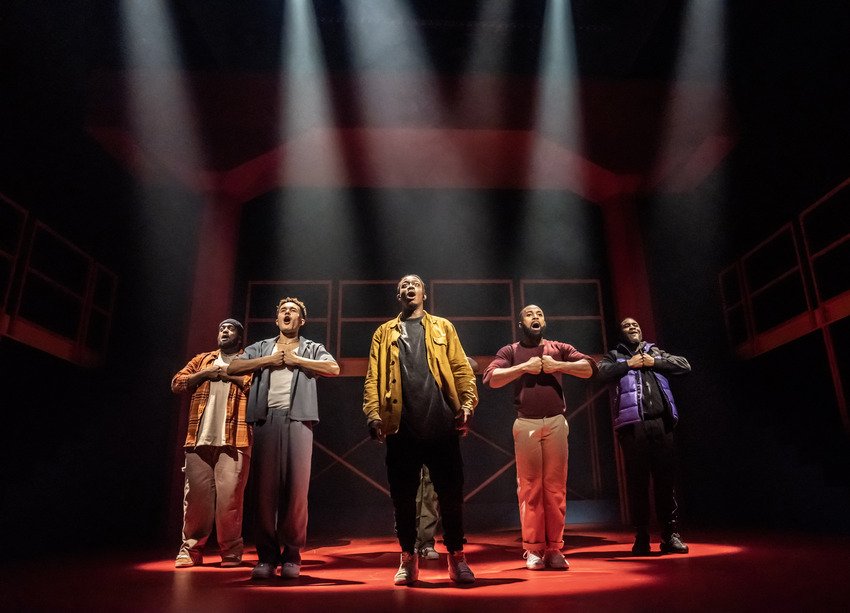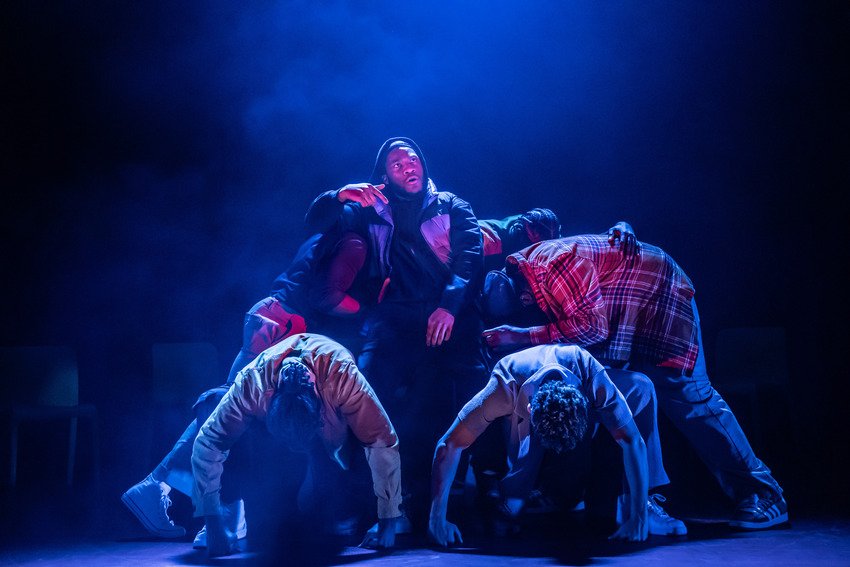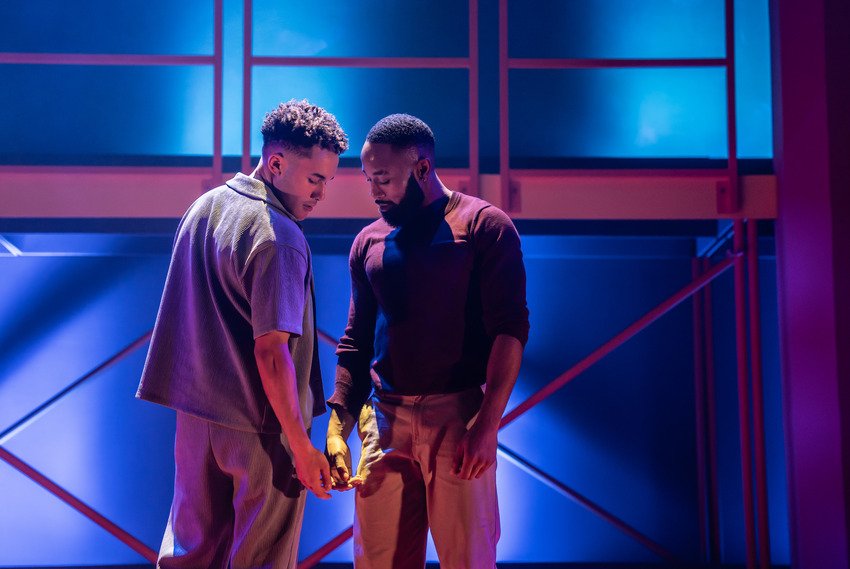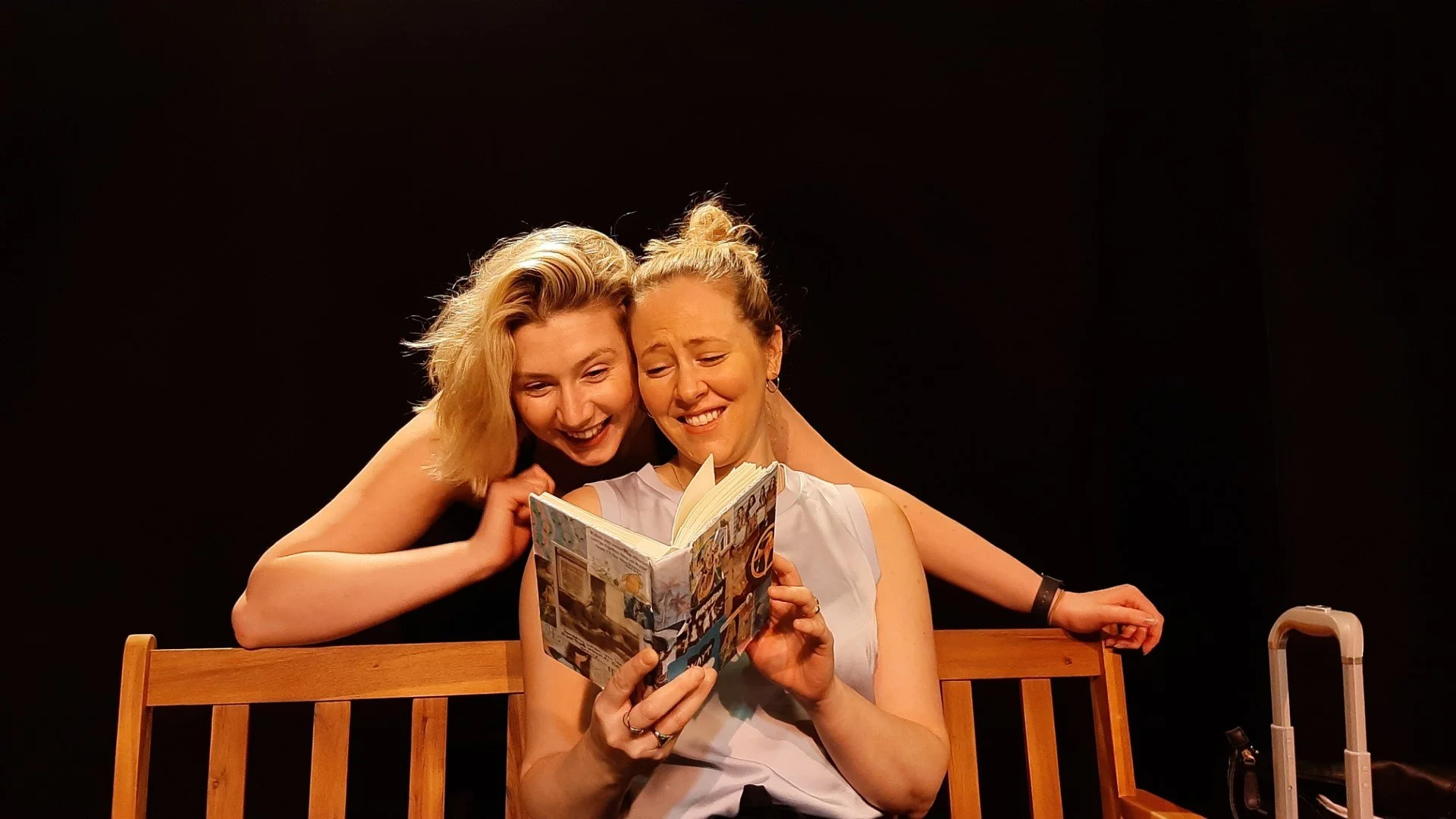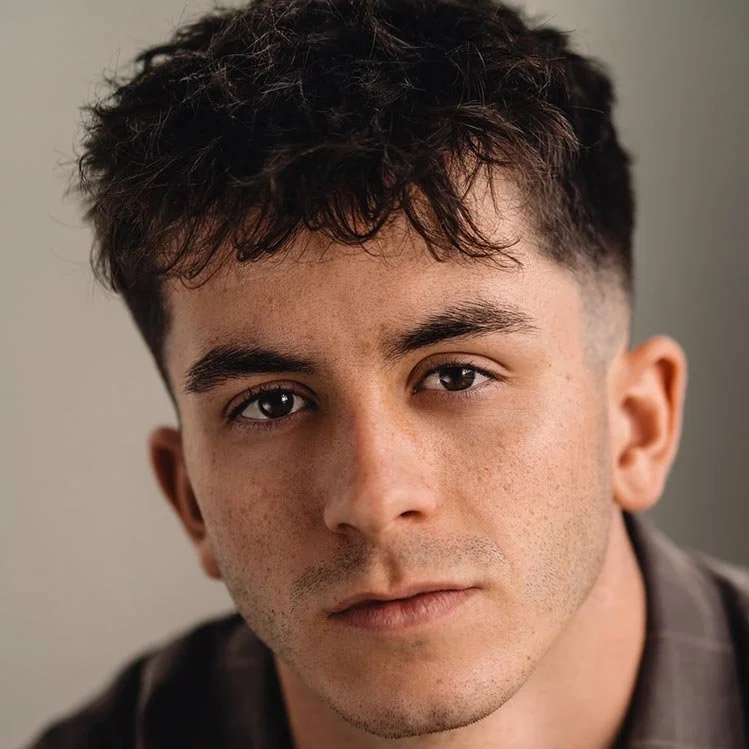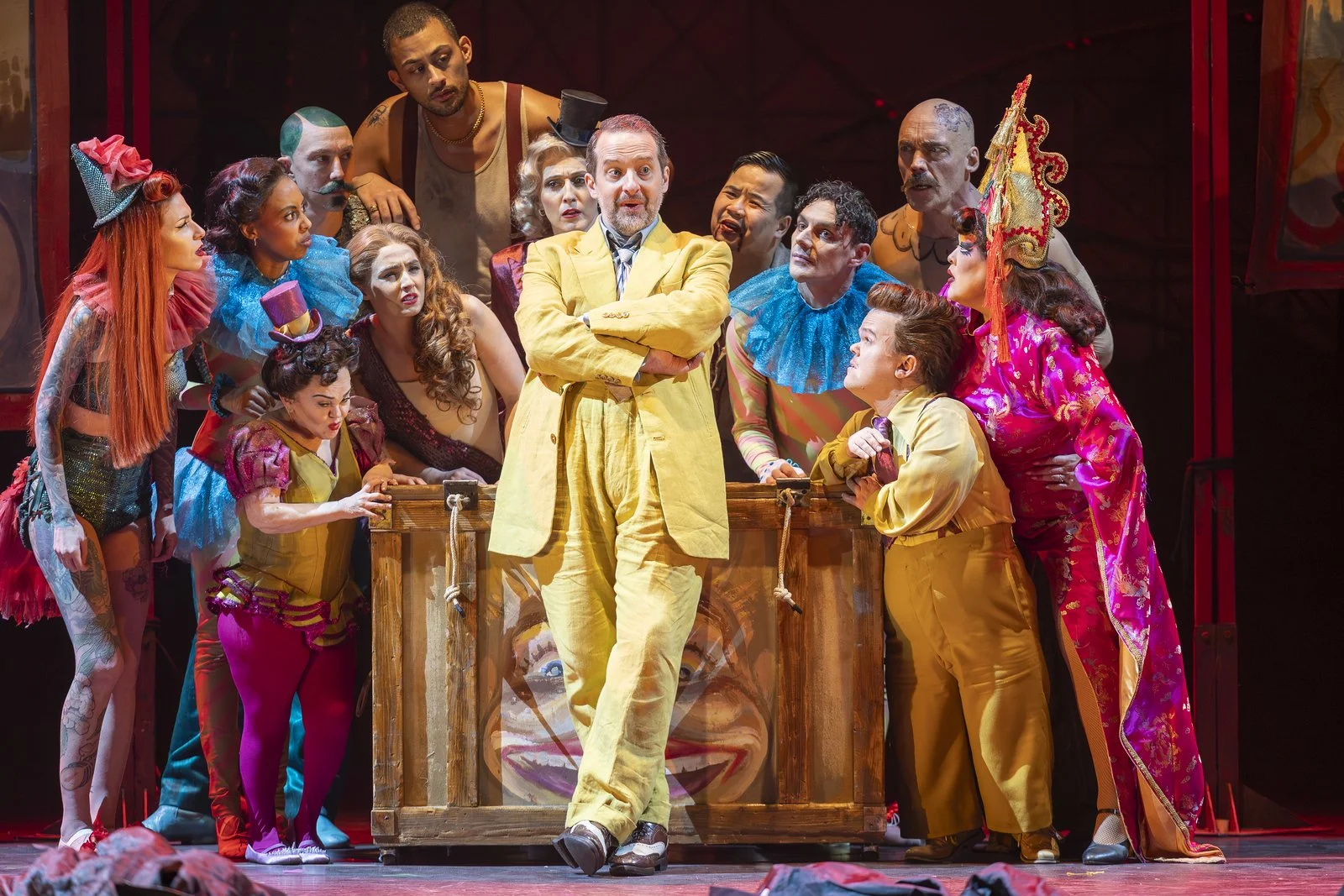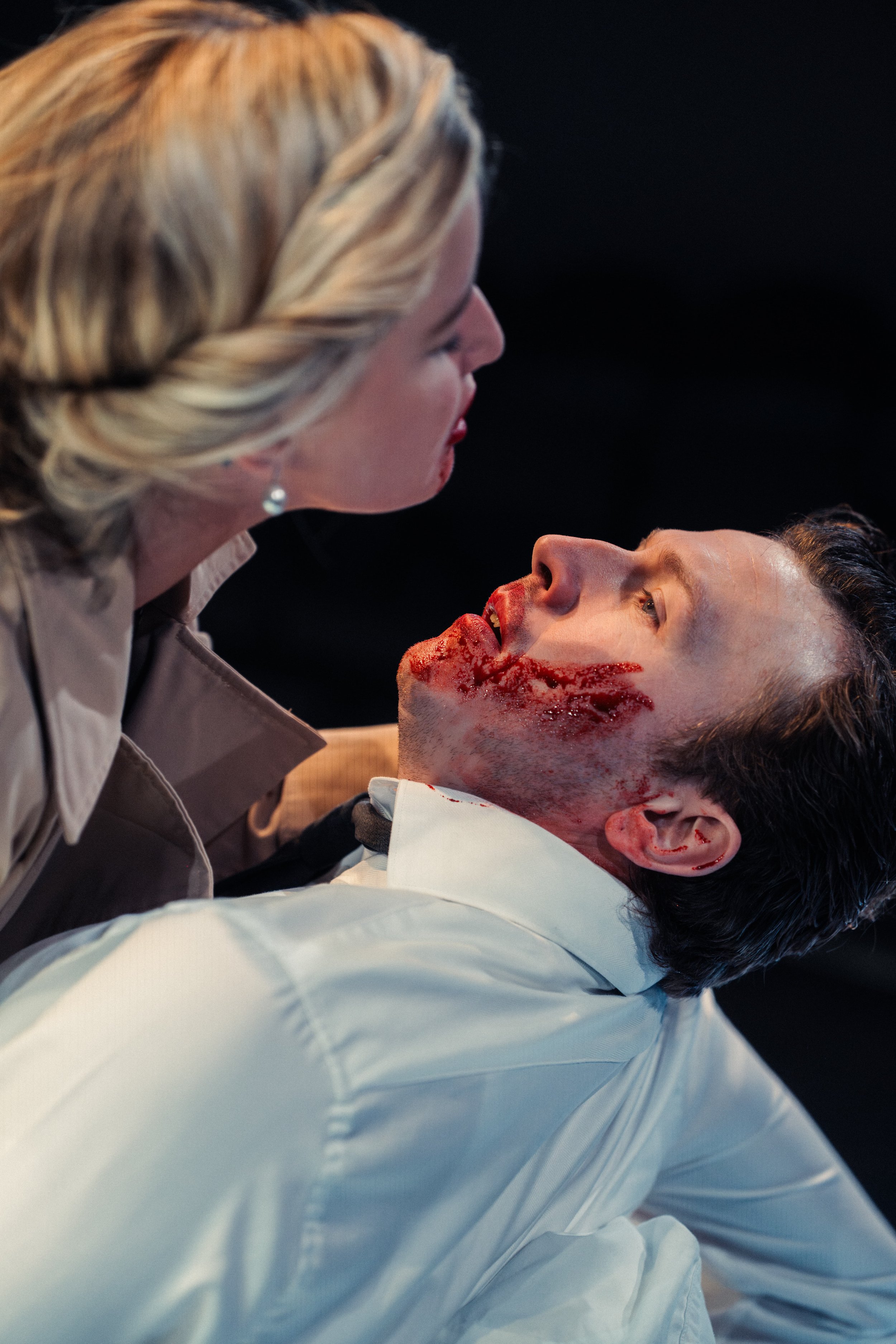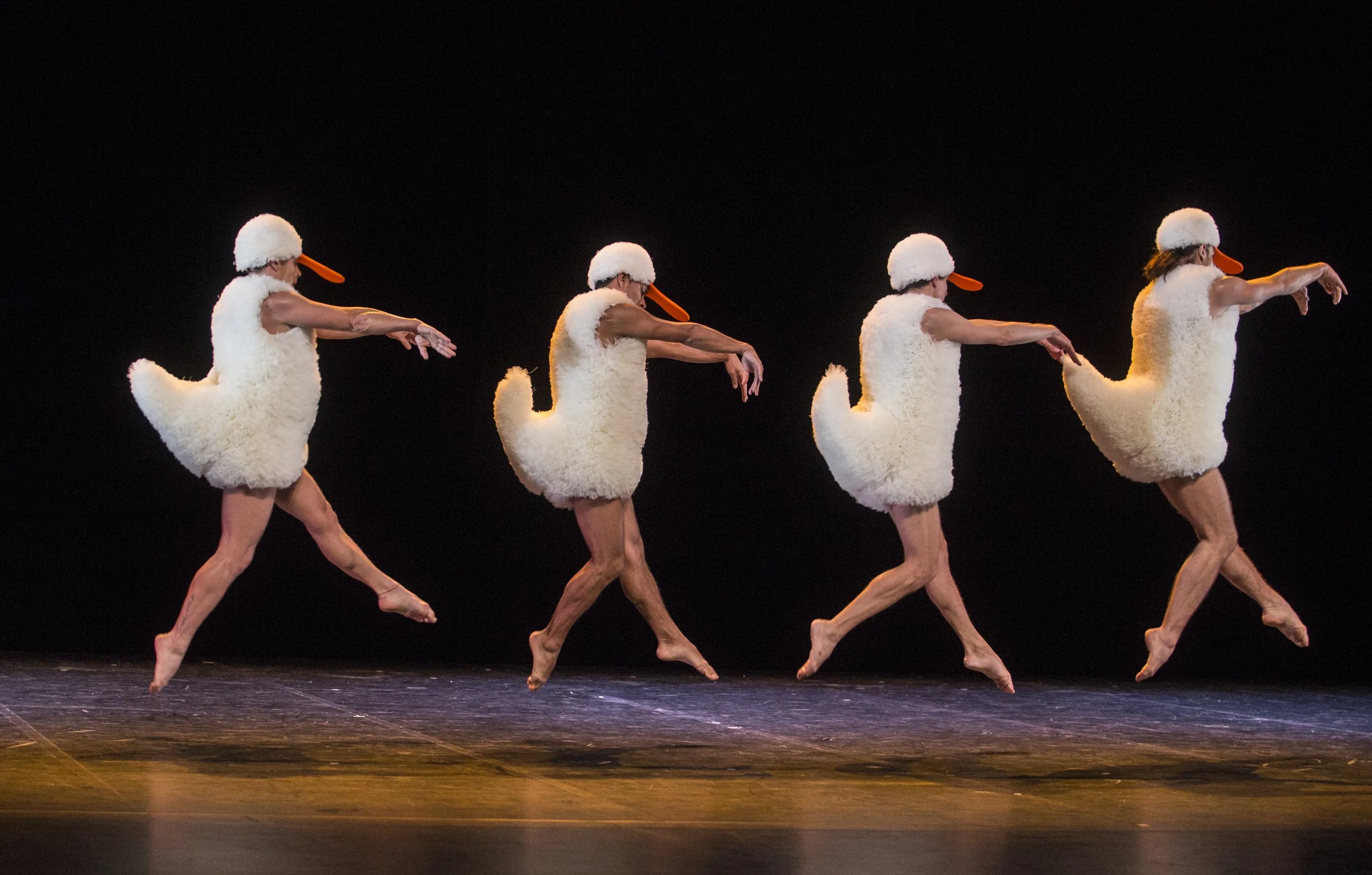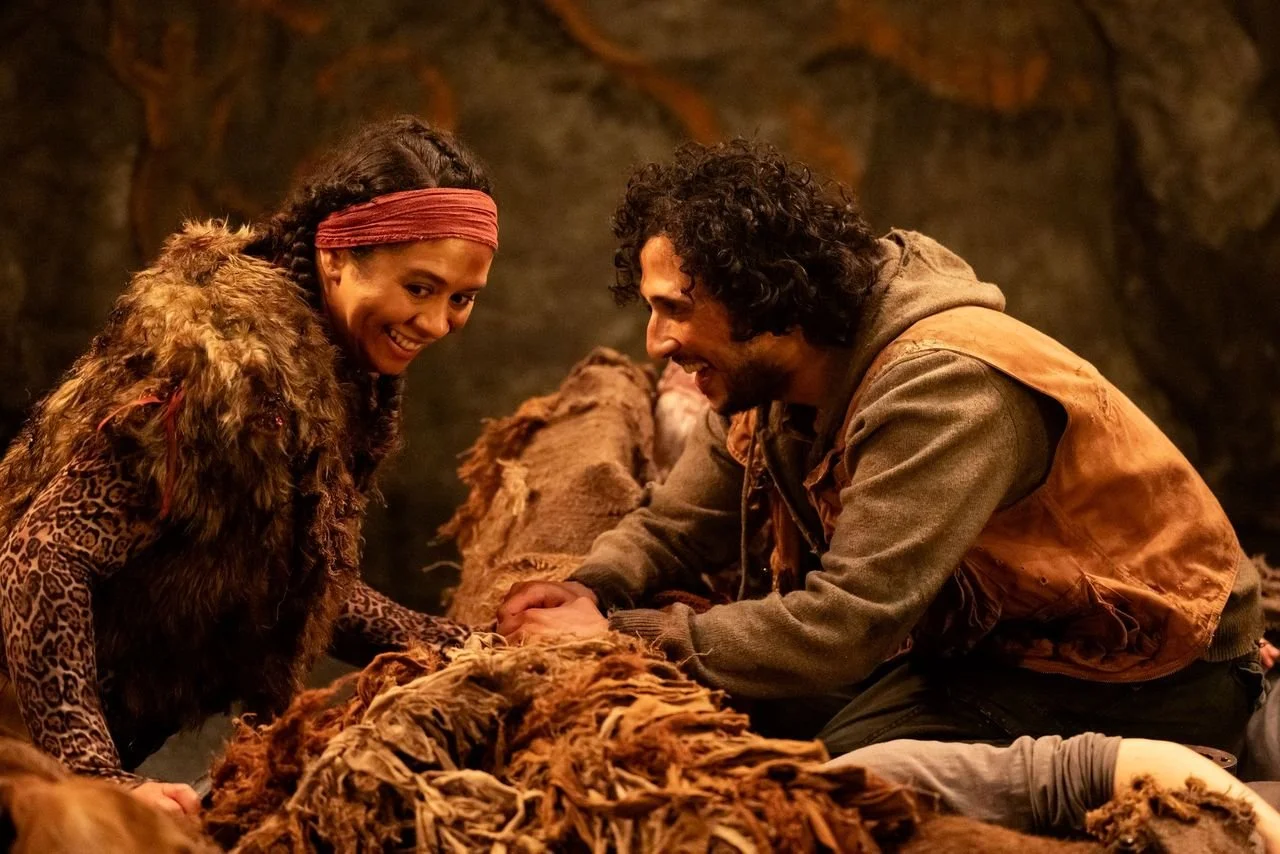For Black Boys Who Have Considered Suicide (When The Hue Gets Too Heavy), Garrick Theatre Review
The cast of For Black Boys Who Have Considered Suicide (When The Hue Gets Too Heavy). Written by Penny for Theatre & Tonic
Disclaimer: Gifted tickets in exchange for an honest review.
For Black Boys … was first staged at the New Diorama Theatre in 2021, reaching the Apollo Theatre in the West End last summer after a sold-out run at the Royal Court. Last year’s run was so successful that this powerful play is back for another limited run, this time at the Garrick Theatre.
Writer and Director Ryan Calais Cameron wrote the play over a 12 year period, inspired by Ntozake Shange’s seminal 1974 choreopoem, For Colored Girls Who have Considered Suicide/When The Rainbow Is Enuf and then by the 2012 killing of Trayvon Martin, an unarmed 17 year old Black boy, which inspired the Black Lives Matter movement. Drawing on the real experiences of Black men, Calais Cameron has written a staggeringly good piece of theatre, using a fusion of poetry, prose, music and dance to tackle subjects that are hard to talk about in a way that handles them with sensitivity but also pulling no punches and not shying away from addressing the everyday racism Black men experience – both conscious and unconscious. It addresses stereotypes and how hard it is to break from that mould. And it clearly resonates with its diverse audience.
The play is structured as a group therapy session, which is attended by the six actors who make up this ensemble cast. They talk about their experiences and how they have impacted on their mental health. They do not call each other by names on stage, and are credited in the programme with names that are associated with blackness; Tobi King Bakare (Onyx), Shakeel Haakim (Pitch), Fela Lufadeju (Jet), Albert Magashi (Sable), Mohammed Mansaray (Obsidan) and Posi Morakinyo (Midnight). The actors are all perfectly cast and work together as a team, supporting each other mentally and physically. It’s a brotherhood, a community, a family. To pick one out as the star of the piece would be wrong, as they all have a moment to shine as they tell their stories. They speak of childhood, parents, siblings, lovers, sexuality, gangs, violence and what it’s like to feel that you don’t fit in and what it means to be Black in a society that remains structurally racist.
The theme of suicide is present throughout the play. But audiences should not expect their experience of it to be heavy and upsetting. The action is fast-paced, moving from banter and comedy to tragedy and heartbreak without missing a beat. Movement Director and Choreographer Theophilus O. Bailey has worked with the cast to deliver physical performances that feel raw, intimate and powerful, a perfect extension of the play’s spoken words. The addition of singing in the second act adds to the intensity and vulnerability in the performances, the harmonies produced by the actors serving to consolidate their bond.
Anna Reid has designed a simple but brilliantly effective set – there’s a colourful backdrop to the bare stage that makes up the therapy room in the first act opening up to include a second level in the second, which allows the actors to make full use of the space available, charging up and down the stairs and climbing the metal scaffolding with irrepressible energy, they fully own their stage.
As soon as you enter the theatre you become immersed in an incredible atmosphere. Before the show and in its interval, the auditorium is filled with a loud, pounding soundtrack with pulsing red lighting. It sets the tone, high energy, high impact and celebratory. The play is challenging, thought-provoking, at times upsetting and at times hilarious. The camaraderie that the actors show is infectious and inspiring. It’s a triumph, an important play that I’d recommend everybody to experience if they can.
For Black Boys … runs at the Garrick Theatre until 4th May 2024. Find out more and book tickets here.
★★★★★

